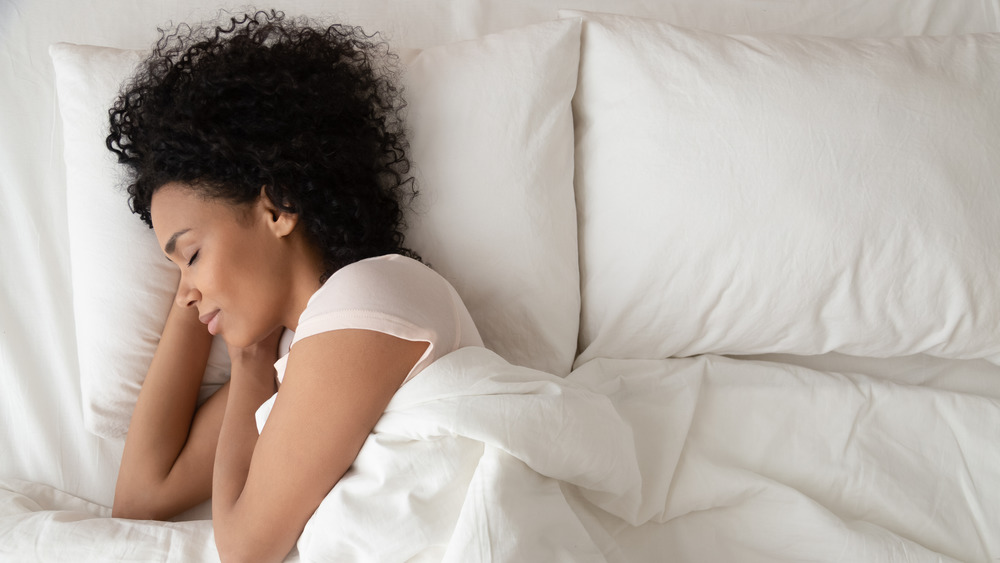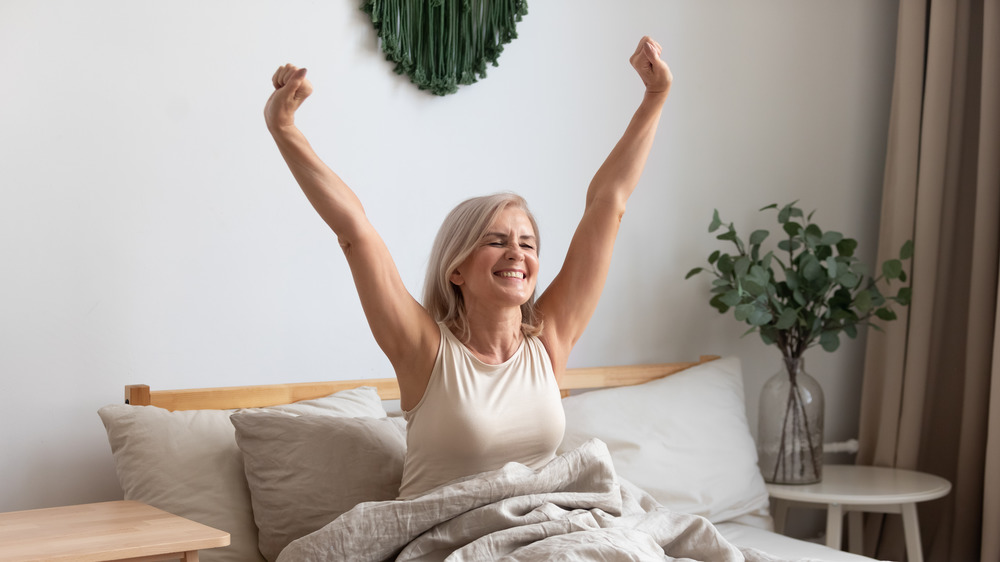The Real Reason You Need To Sleep With Pillows
Seven thousand years ago, our ancestors were already in the habit of laying their heads on a pillow when going to sleep. Of course, since at that time pillows were made of stone, wood, or ceramic, comfort may not have been the main goal. But still, it's likely that someone discovered early on that his or her neck hurt less after being elevated a few inches during the night, and the idea caught on.
Matthew O'Rourke, a physical therapist at Spaulding Rehabilitation Hospital, explained it to Harvard Health Publishing this way: "If your neck is bent in any way for an extended period of time, you'll get uncomfortable." The human spine naturally curves in three places — at the neck, mid-back, and lower back. The key to getting a good night sleep, which in turn contributes to overall health and normal functioning during the day, is to keep the spine in a natural alignment, with a fairly straight line running from your ear through your shoulder, hip, knee, and down to the ankle (via Best Life). Basically, good posture is important 24/7, not just during your waking hours, to reduce strain on the muscles, joints, and ligaments.
The right pillow can help you get a good night's sleep
What you sleep on has a big impact on maintaining the proper alignment. According to certified sleep science coach Bill Fish, "While a mattress plays a large role in keeping [your] lower spine properly aligned, a pillow is key to keeping [your] neck in proper position." The best pillow for you is a matter of personal preference. There are so many options on the market today, at a variety of price points, from high-tech synthetic materials to all-natural down and feather, with many levels of firmness to choose from. The position you normally sleep in is a consideration, too. According to The Sleep Doctor, side-sleepers may need a thicker, firmer pillow, while back sleepers would probably find a thinner, softer pillow more comfortable.
When it comes down to it, the pillow that feels right probably is. "Anything that will make you more comfortable will improve the likelihood of getting a good night's sleep," says Dr. Lawrence Epstein, a sleep expert at Harvard-affiliated Brigham and Women's Hospital.


